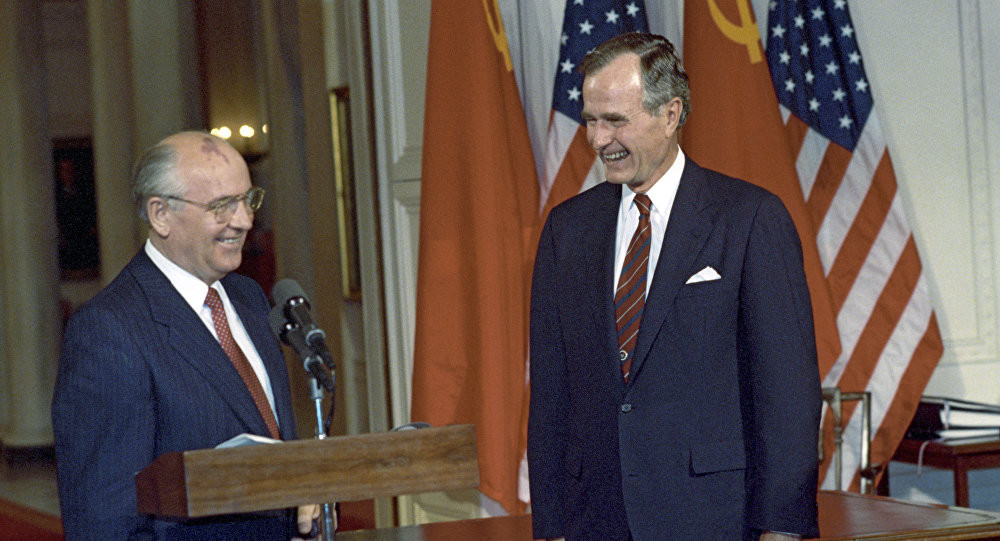American magazine talks about NATO "breaking its promise" to Gorbachev
Western countries promised Soviet President Mikhail Gorbachev in 1990 that they would not expand NATO to the East, but later "swallowed these promises," writes National Interest magazine.
Just before the collapse of the Soviet Union, US President George W. Bush (father), British Prime Minister Margaret Thatcher, French President Francois Mitterrand, German Chancellor Helmut Kohl and the Foreign Ministers of these countries promised Moscow that they would not admit the Warsaw Pact countries into the North Atlantic Alliance.
 |
| Soviet President Mikhail Gorbachev in a meeting with US President George W. Bush (father). Photo: Sputnik |
As NATO lost its purpose for existence after the disappearance of the "Soviet threat", in 1993 there were calls in the US to change its course or principles of operation.
These slogans had a "powerful magical effect" in the form of a Washington-led North Atlantic Alliance invasion of the Balkans.
The “zombie transformation of NATO”, according to the article, happened in 1994, when NATO initiated the “Partnership for Peace” program to cooperate with non-member countries, and then Poland, the Czech Republic, Hungary and most of Eastern Europe lined up to join the alliance, because the US promised them military support against the “Russian threat”.
The article highlights the role of the 1996 US presidential election, when Bill Clinton and his Republican opponent, Bob Dole, spoke in favor of NATO expansion.
The author notes that in the 1990s, Russia was not a threat, and there was no reason to think it would return. Yet Bill Clinton and his fellow senators were enticed by the opportunity to make the right historical choice and the prospect of collecting more campaign contributions.
In addition, arms manufacturers are also interested in NATO expansion because new countries joining the organization promise new orders.
Now, the magazine writes, Georgia plans to join NATO, which would result in it becoming a country under the US military umbrella.
“And if US President Donald Trump does not want Moscow to see Georgia as a springboard for a future attack on Russia, he can simply say no,” the author of the article concludes.

